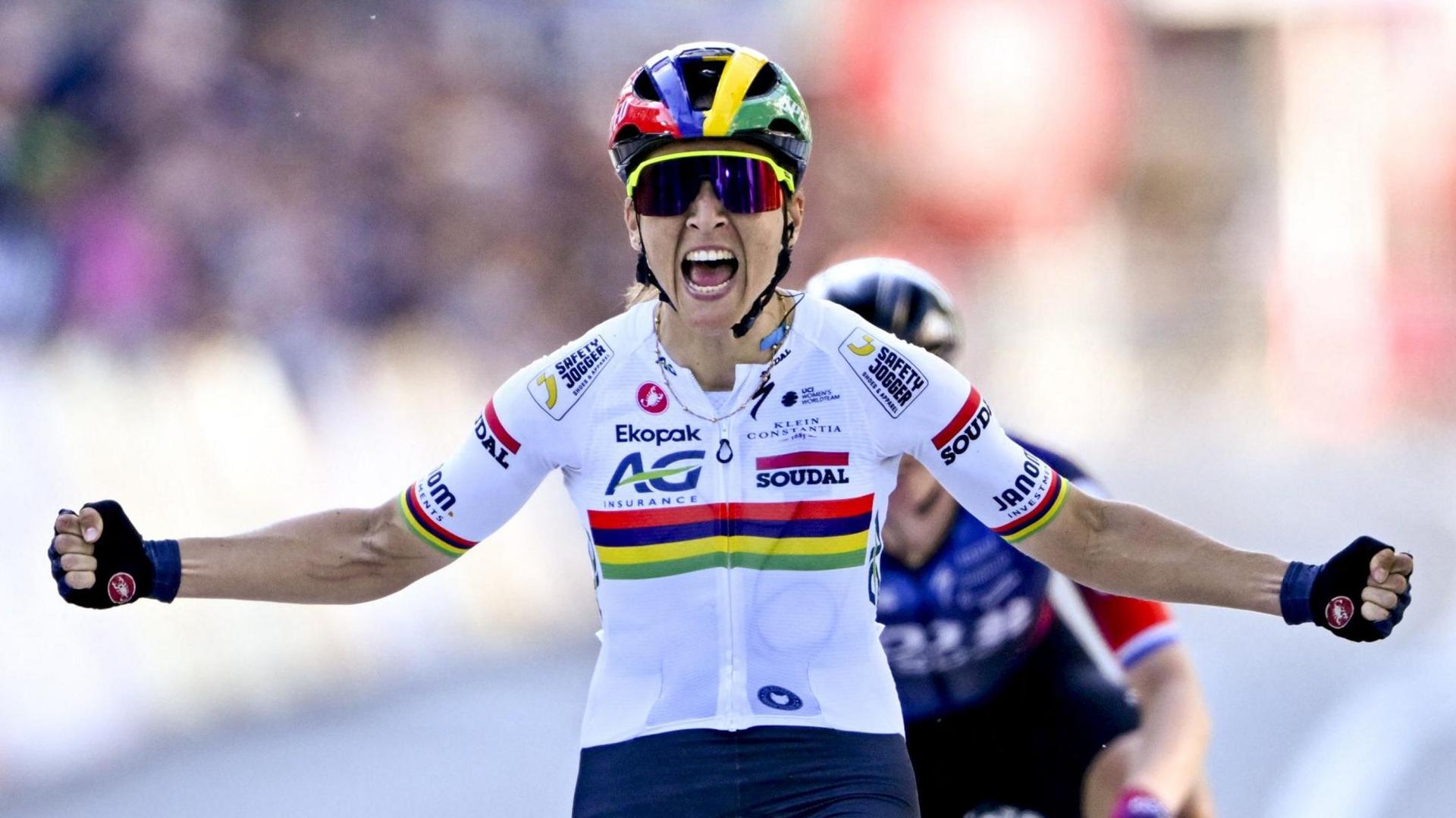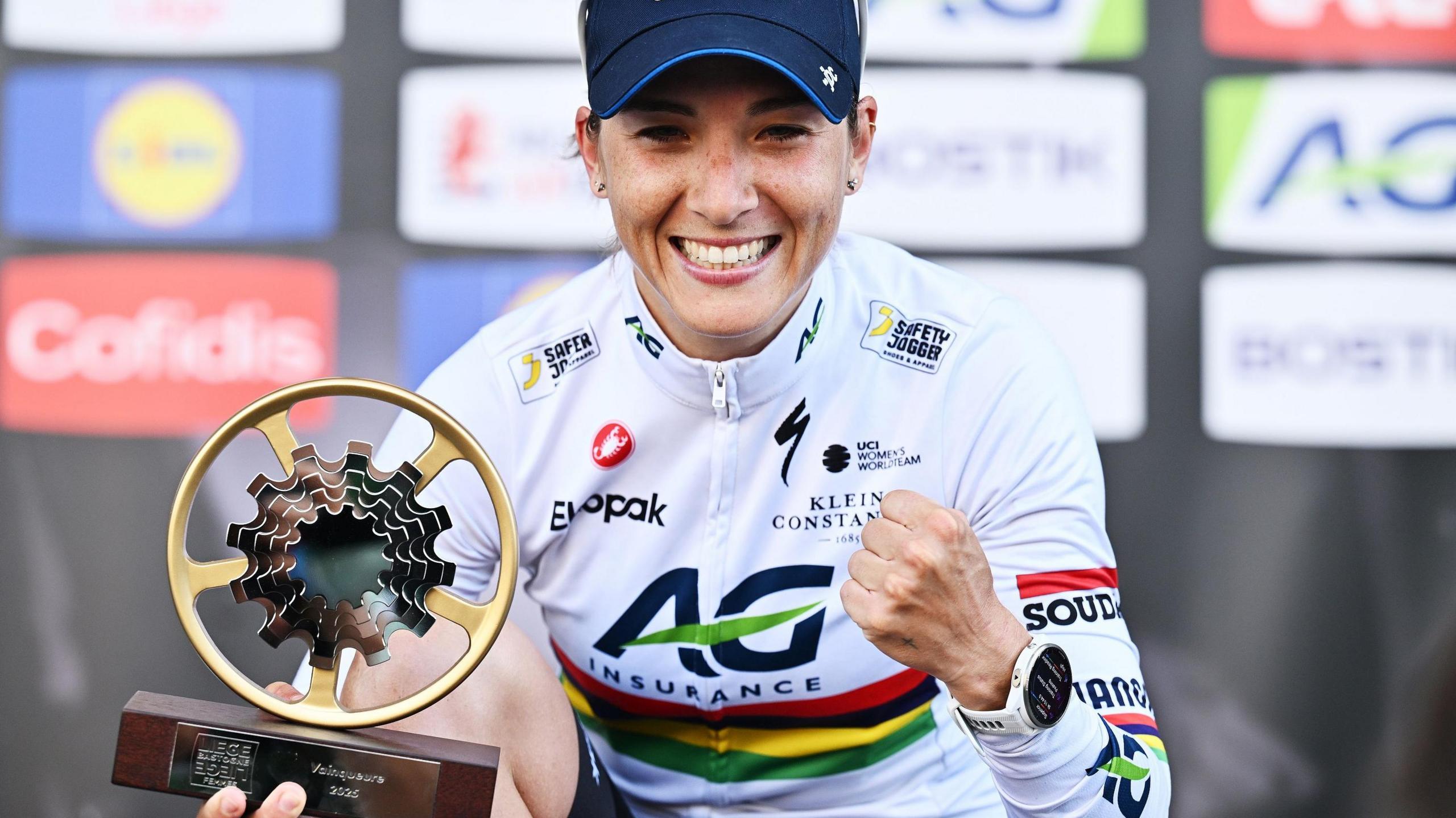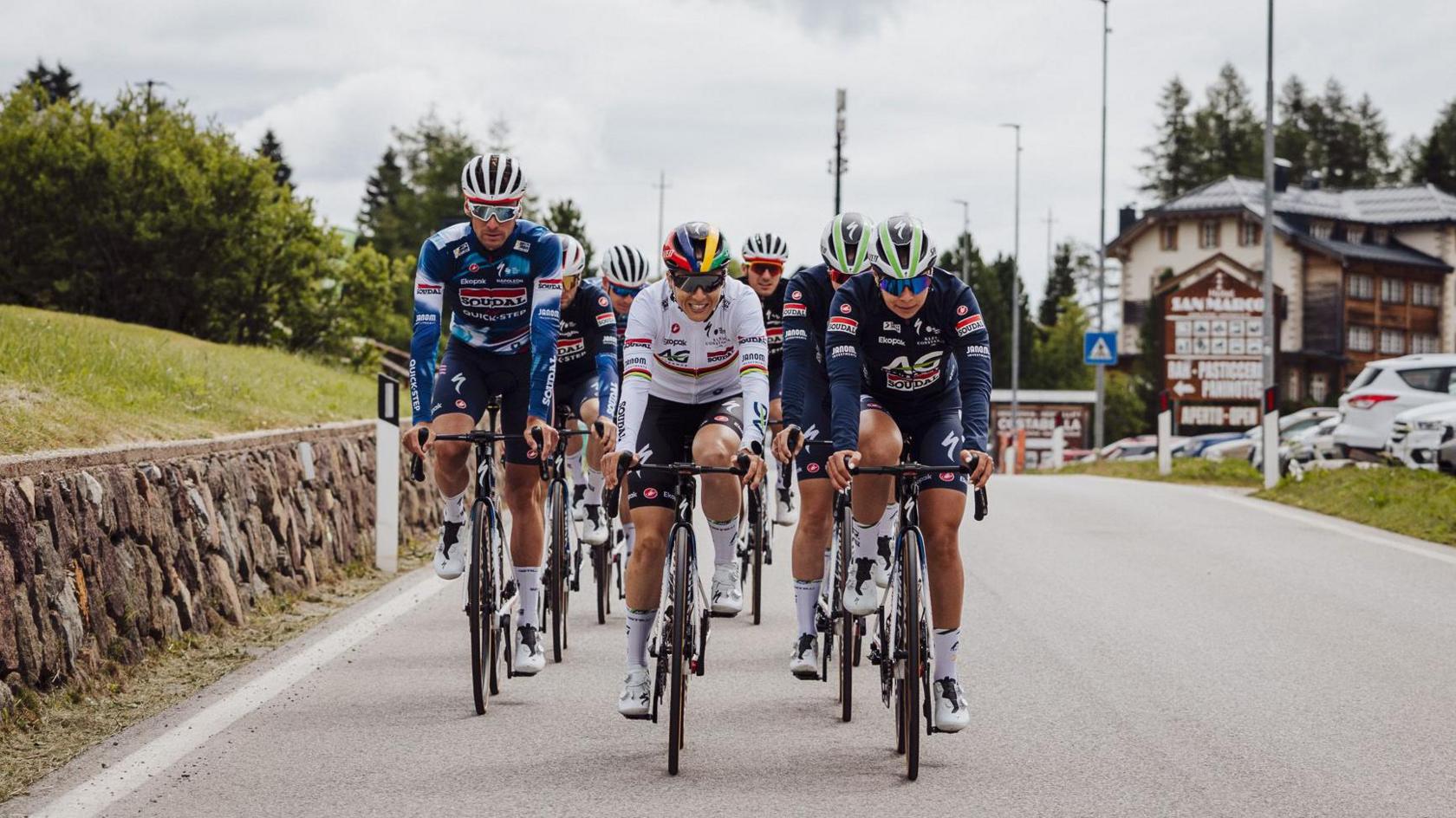Can Le Court make women's Tour history for Africa?

Last year Kim le Court became the first Mauritian rider to compete on the World Tour, and she has registered a number of firsts for female African cyclists
- Published
When Kim le Court pedals up to the Tour de France Femmes start line, the cyclist knows she will represent not just her team but the whole of Africa.
Yet, hailing from the tiny island nation of Mauritius, the chance to race alongside the world's elite once seemed a distant dream.
"I came to Europe in 2015-16 and it was honestly extremely hard for me. My team-mates now still laugh about my results back then," the 29-year-old told BBC Sport Africa.
"I just came last every day and was just surviving those races. I was hating it.
"When I speak to young female cyclists now, I tell them that I come from a small island in the middle of nowhere that for a long time no-one had really heard of, and I made it. And if I made it, they can too."
Le Court describes that first stint in Europe when still a teenager as "a shock to the system", with both support structures and financial challenges contributing to her struggles.
She returned to the continent, basing herself in South Africa, and it has been a long journey since those early setbacks.
As well as rediscovering her form in Africa, Le Court also recorded victories in mountain bike races. After discussions with her now-husband Ian Pienaar, she decided to give road racing in Europe another go.
"I'm super hungry for more and for new beginnings," she said.
"It didn't work out for me in 2015, 2016, but he (Ian) always knew that I've always wanted to belong there. And of course, the growth of woman's cycling since I was there [until] now has been huge."
She secured a contract with the AG Insurance–Soudal team for 2024 but, after overcoming a wrist injury, top-level success has only really arrived in the past twelve months.
Tackling the 'next level' Tour

Kim Le Court is the first female African rider to win Belgium's prestigious Liege-Bastogne-Liege one-day race
In July last year - almost 10 years since her debut as a professional – Le Court recorded her biggest win when a gruelling sprint finish on the final stage of the Giro d'Italia saw her become Africa's first female rider to win a stage on one of cycling's Grand Tours.
In April she hit the headlines once more, triumphing at the Liege-Bastogne-Liege race, again becoming the first African woman to do so.
"It was extremely special," she said.
"I'm still quite taken back on what I have achieved for me personally, as a rider but also for my country, the continent I'm from and especially my team."
Now comes her second attempt at the Tour de France, which starts in the historic walled town of Vannes in Brittany, north-west France, on Saturday.
Extended to nine stages for its fourth edition, the chance to compete for the famous yellow jersey alongside over 150 other riders is a tantalising prospect.
"The Tour de France is just next level compared to all the other races," Le Court explained.
"The media attention, the crowds, the pressure, it is three or four times more intense!
"It is hard to explain unless you have been there, physically, to experience it. But at the same time it is a race that brings out the best in everyone.
"There are definitely a few stages that I have in mind which fit my profile."
Le Court is well aware of the importance of staying healthy at these long, multi-stage races, especially after several female riders had to pull out of this year's Giro d'Italia because of illness.
"There is no hiding at the Tour de France, which is something I personally really like.
"It shows what your work ethic as a rider really is.
"It is the dream race for all professional men and women cyclists. They all want to be there, they all want to win a stage.
"Even just making the team selection is a big achievement."
A 'true hope' for Africa

Le Court (centre, in white) hopes altitude training in the "beautiful" scenery of Italy's Dolomites mountain range will pay dividends at the Tour de France
Eritrean rider Biniam Girmay has broken barriers in men's cycling with his landmark victories at the Giro and the Tour de France, and Le Court believes that a historic Tour stage win for her over the next two weeks would also have a significant impact on the continent.
Currently ranked in the top 20 female riders in the world, she has been hailed as "more than an athlete" by the next generation.
"For me, Kim le Court is a true hope for Africa," Georgette Vignonfodo, an 18-year-old cyclist from Benin, told BBC Sport Africa.
"She embodies courage, perseverance and pure talent.
"She represents an example to follow, a source of inspiration for all those who dream big despite obstacles."
In Ethiopia, fellow teenager Tsige Kahsay is also keenly watching Le Court's progress.
"It makes me so happy when I see Africans race and win on the world stage on TV," the rapidly rising 18-year-old said.
"When I see Kim, Ashleigh [Moolman-Pasio] and Biniam from Africa there, it is so motivational.
"My dream is now to be the first Black African queen of cycling, and one day race at the Tour de France."
Kahsay and Vignonfodo are part of the Africa 2025 project run by the UCI, cycling's world governing body, which aims to help talent from the continent access the best training and development ahead of the Road World Championships, which take place on African soil for the first time in September in Rwanda.
Riders like Le Court are the inspiration for these youngsters, and securing a slice of history at the Tour could prove a defining moment in the growth of African cycling.